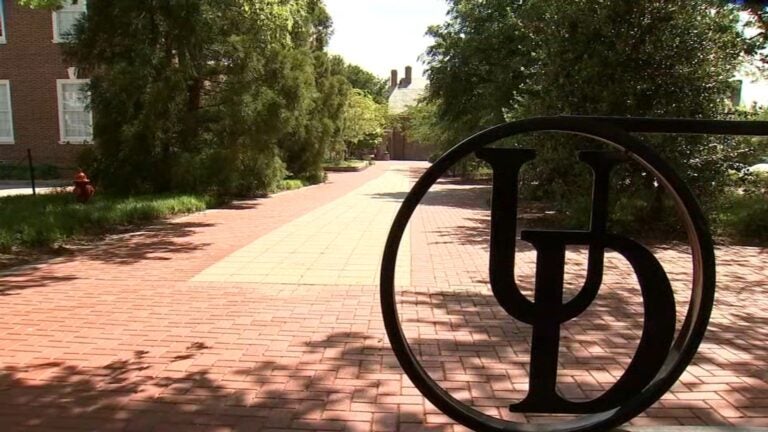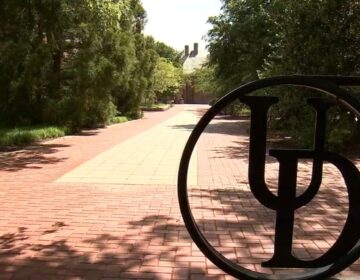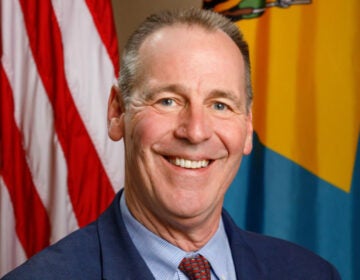Former UD student ‘incel’ sentenced to prison for stalking and threatening women, fraud
Delaware resident Kyle Stevens submitted 10 fraudulent applications for pandemic aid for small businesses while living overseas.
Listen 0:35
A sign at the University of Delaware (6abc)
From Philly and the Pa. suburbs to South Jersey and Delaware, what would you like WHYY News to cover? Let us know!
This story was supported by a statehouse coverage grant from the Corporation for Public Broadcasting.
A former University of Delaware student who identified with “incels” has been sentenced to more than seven years in prison for stalking two women for four years while stealing $1.5 million in pandemic relief funding.
According to a news release from the U.S. Attorney’s Office for the District of Delaware, Kyle Stevens, 30, sent disturbing death threats to the women, telling them, “I’m going to slaughter you. I’m going to string you up. I’m going to put you on hooks in the back of a freezer like a [expletive] cow.”
Police who seized his electronic devices discovered diatribes where he expressed the worldview of an “incel” or “involuntary celibate” — meaning having hostility toward women because of an inability to form sexual relationships with them. Some men who have identified as “incels” have planned or committed violence, including mass shootings, according to the International Centre for Counter-Terrorism.
“The defendant terrorized multiple women and committed over $1.5 million in pandemic relief fraud,” said U.S. Attorney David Weiss. “He perpetrated this months-long crime spree, harming individual women and the community at large, all from behind a computer in a foreign country. Today’s sentence demonstrates Stevens is not above the law.”
Stevens became obsessed with his victims while they were all students at UD during the 2018–2019 school year, the news release said. The harassment continued after he moved overseas to Germany in October 2020 to study abroad. Stevens pursued the women online using numerous email accounts, phone numbers and their families’ social media platforms.
Stevens wrote a plan in Sept. 2021 to harass his victims, even setting up calendar reminders to menace his victims, according to the news release. The stalking campaigns included repeated threats to put a “bullet in your head” to “kill you.”
During this time period, Stevens submitted 10 fraudulent applications for COVID-19 pandemic relief loans for small businesses that did not exist. U.S. District Judge Richard G. Andrews ordered the defendant forfeit more than $1.4 million in fraudulent proceeds from Stevens’ bank accounts as part of his sentence.
“In addition to his menacing and predatory behavior, Stevens targeted taxpayers by stealing more than a million dollars of pandemic relief aid,” Baltimore FBI Special Agent William DelBagno said in the news release. “The FBI will always hold accountable those seeking to victimize others for their personal gain and gratification.”

Get daily updates from WHYY News!
WHYY is your source for fact-based, in-depth journalism and information. As a nonprofit organization, we rely on financial support from readers like you. Please give today.






